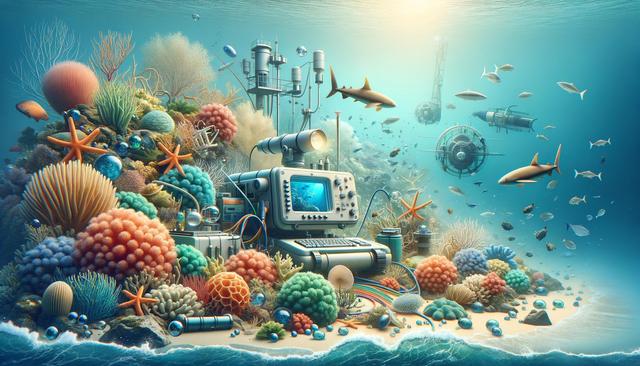Understanding the Scope of a Marine Science Degree
A Marine Science degree is an interdisciplinary program that blends biology, chemistry, physics, and environmental science to study the ocean and its complex systems. Students gain a solid foundation in scientific principles while applying them to real-world marine environments. From studying microscopic plankton to tracking large marine mammals, the scope of this degree is broad and continually evolving. It prepares graduates for a range of roles in research, conservation, and policy development. Marine Science is especially valuable in addressing global issues such as climate change, overfishing, and habitat degradation.
Most universities offering Marine Science degrees include coursework in oceanography, marine ecology, and environmental policy. Some programs also provide access to specialized laboratories, marine vessels, and coastal field stations. These resources enable students to conduct research and gather data in natural marine habitats, reinforcing theoretical knowledge through practical experience. The versatility of the degree means students can tailor their studies toward specific interests like coral reef restoration, fishery management, or marine biotechnology.
Exploring Hands-On Learning Opportunities
What sets many Marine Biology programs apart is their emphasis on experiential learning. Hands-on opportunities form a core part of the curriculum, providing students with direct exposure to the marine environment. These experiences are not only engaging but also crucial for developing practical skills in observation, data collection, and analysis. Students frequently participate in:
- Field studies on coastal ecosystems
- Research cruises aboard university-operated vessels
- Internships with marine conservation organizations
- Lab work involving marine organisms and water quality testing
Such immersive experiences are essential for understanding the dynamic conditions of marine systems. Students may find themselves snorkeling over coral reefs, tagging sea turtles, or analyzing sea water samples under a microscope. These activities not only enhance their understanding of the subject matter but also make them more competitive in the job market after graduation.
Choosing the Right Program for Your Goals
Selecting a Marine Science program involves considering several factors beyond just academic reputation. Aspiring marine scientists should look for programs that align with their career goals and offer ample fieldwork opportunities. Coastal universities often have proximity to diverse marine ecosystems, which can enrich learning experiences. Key elements to consider include:
- Access to marine laboratories or research centers
- Collaborations with local or international marine institutions
- Availability of research funding and grants
- Study abroad or exchange programs in marine-rich regions
In addition to undergraduate programs, some institutions offer accelerated or joint degree paths that combine a bachelor’s degree with a graduate program. These tracks are ideal for students aiming to enter specialized fields or research-oriented careers. Applicants should also inquire about faculty expertise and active research projects, as mentorship can play a significant role in academic and professional development.
Career Pathways with a Marine Science Degree
A Marine Science degree can open the door to a diverse range of careers, depending on the individual’s interests and additional qualifications. Graduates often pursue roles such as marine biologists, environmental consultants, fisheries managers, or coastal zone planners. Others may work in government agencies, environmental NGOs, or private sector companies specializing in marine technologies or sustainability solutions. Some common career sectors include:
- Marine conservation and habitat restoration
- Oceanographic research and data analysis
- Environmental policy and advocacy
- Marine education and outreach
For those interested in research or academic roles, pursuing a master’s or doctoral degree in marine science or a related discipline is often necessary. These advanced degrees allow for specialization and may lead to teaching positions at universities or leadership roles in research institutions. Regardless of the chosen path, the practical skills and scientific understanding gained through a Marine Science program provide a strong foundation for tackling marine and environmental challenges.
Future Trends and Global Relevance
The relevance of Marine Science continues to grow as environmental concerns and ocean health become global priorities. Marine ecosystems are vital to climate regulation, biodiversity, and food security, making the study of these environments increasingly important. Programs that incorporate emerging technologies—such as remote sensing, GIS mapping, and underwater robotics—prepare students to address these challenges with innovative solutions.
Collaborative research is another growing trend, with universities partnering with governmental and non-governmental organizations to conduct large-scale studies. This approach not only enhances the breadth of research but also provides students with opportunities to contribute to impactful projects. Furthermore, global initiatives like marine protected areas and sustainable fisheries management rely heavily on the expertise of trained marine scientists.
As public interest in ocean conservation rises, Marine Science graduates may also find roles in public education, science communication, and policy advising. Their ability to translate complex scientific concepts into accessible information can drive informed decision-making and community engagement.
Conclusion: Navigating Your Marine Science Journey
Pursuing a Marine Science degree is a meaningful step for anyone passionate about understanding and protecting our oceans. Programs that emphasize hands-on learning provide a valuable framework for building both academic knowledge and practical skills. Whether your goal is to conduct groundbreaking research, influence environmental policy, or engage communities in conservation efforts, a Marine Science degree offers a pathway to make a tangible impact. By choosing a program that reflects your interests and career aspirations, you’re setting course for a dynamic and rewarding journey beneath the waves.




Leave a Reply